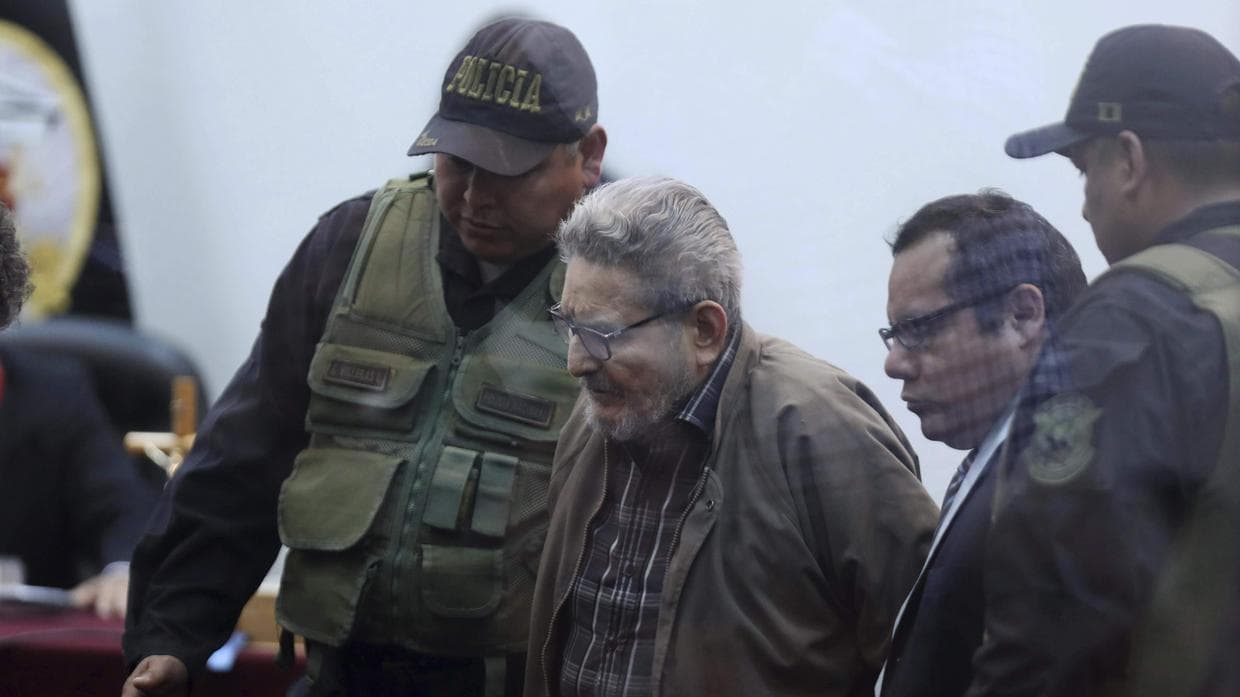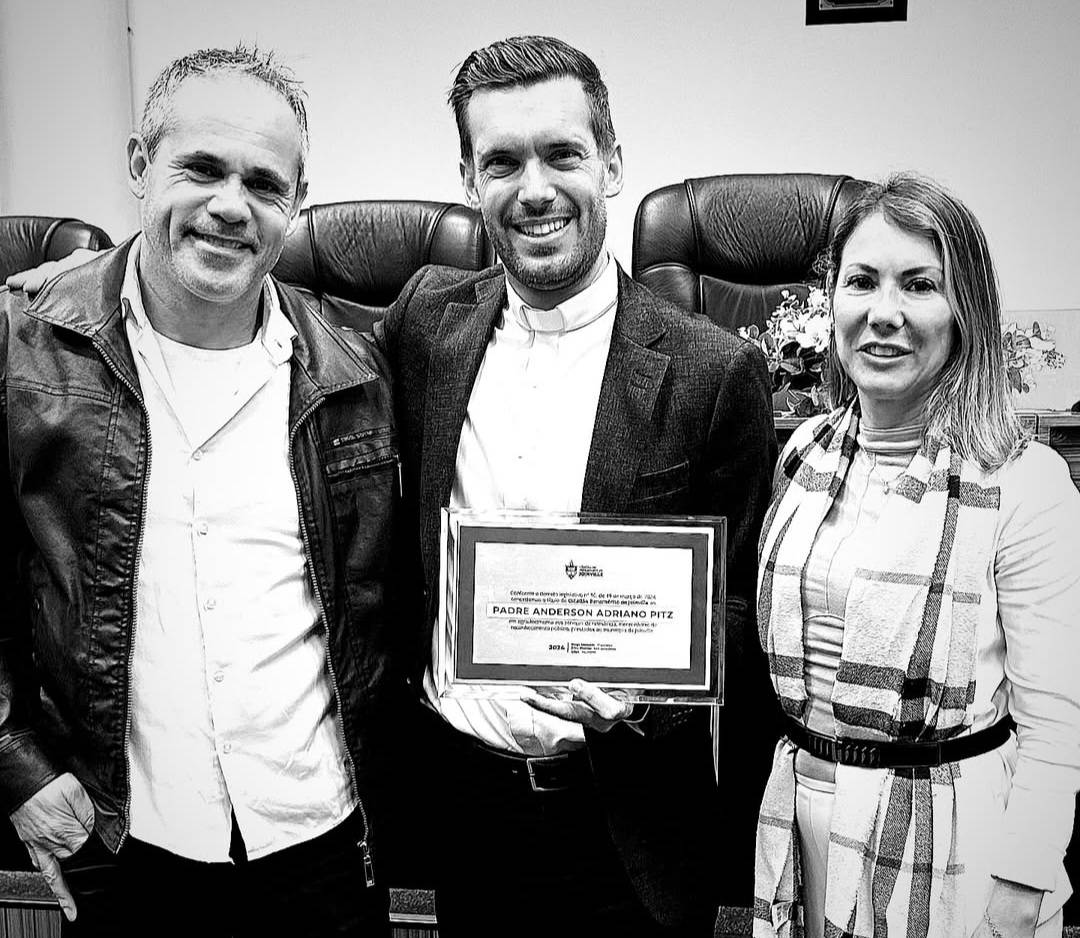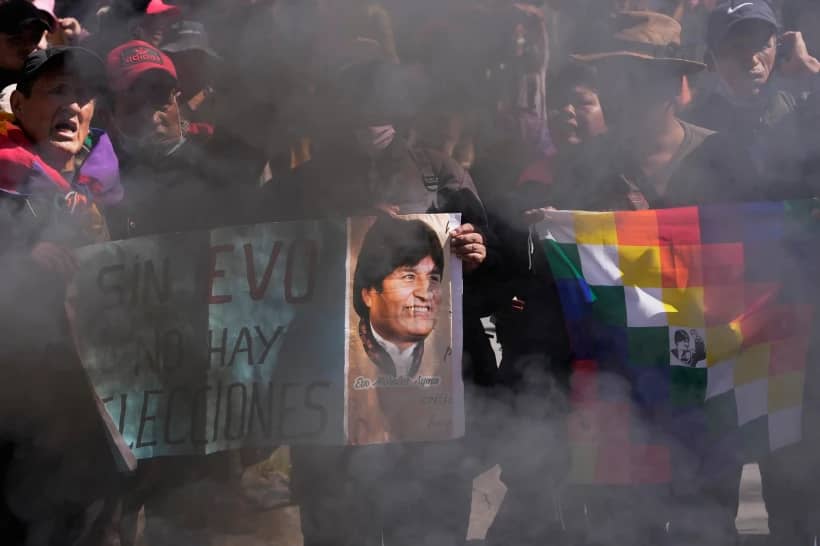ROME – “You gave us back our hope and joy” – this was the message of one of Peru’s top prelates to the special forces unit that arrested Abimael Guzmán, founder of the infamous “Shining Path” terrorist group.
The remarks were made by Archbishop Carlos Castillo of Lima Sunday during a special Mass commemorating the 29th anniversary of Guzmán’s arrest on Sept. 12, 1992, and which was attended by members of the Special Intelligence Group of Peru (GEIN), who were responsible for Guzmán’s arrest.
Coincidentally, Guzmán died the day before the Mass while incarcerated at the Maximum-Security Detention Center at the Callao Naval Base where he was serving a life sentence for terrorism.
A formal autopsy found that Guzmán, 86, died of bilateral pneumonia.
Following news of Guzmán’s death, Peruvian President Pedro Castillo – who has been accused of adopting a Marxist/Leninist approach to governance, and some of whose party members have been accused of holding ties to the remnants of the Shining Path – sent a tweet saying Guzmán was “responsible for the loss of countless lives of our compatriots.”
“Our position condemning terrorism is firm and unwavering. Only in democracy will we built a Peru of justice and development for our people,” he said.
Having grown up in privilege and attended prestigious Catholic schools, Guzmán went to the University of Arequipa, where discovered the works of German philosopher Immanuel Kant, and began to develop a keen interest in Marxism.
By 1962, Guzmán was a professor of philosophy at San Cristóbal of Huamanga National University in Ayacucho. Just three years later, he made a visit to China, where he became enraptured with Chinese Communist leader Mao Zedong.
Upon his return, Guzmán invited like-minded academics to join him at San Cristóbal, and by 1969, he and a small group of followers established the Shining Path which was chosen from phrase uttered by Peruvian communist intellectual José Carlos Mariátegui, who said that “Marxism-Leninism is the shining path of the future.”
Inspired by Mao’s tactics, Guzmán and his group soon launched what they called a “people’s war” in a bid to overthrow Peru’s democracy and establish a communist state.
Although the group did not initially resort to violence, that changed in 1980 after the Peruvian military, who had ruled Peru for 12 years, called for democratic elections.
Not only did the Shining Path boycott the elections, but they burned ballot boxes and began assassinating villagers in rural areas who were suspected of supporting the government. They used public “show trials” and executions to spread fear, with assassinations and car bombings becoming so frequent they nearly crippled the nation.
One of the deadliest incidents took place in 1983 near Santiago de Lucanamarca, when 69 people were brutally killed with axes, machetes, and guns, as an act of retaliation for the killing of a Shining Path leader.
Shortly before Guzmán’s arrest, two truck bombs in Lima’s Miraflores district killed 25 people and injured roughly 155 more.
Peruvian intelligence finally located Guzmán and captured him in September 1992. He was sentenced to life in prison after a brief 3-day trial, conducted under special measures implemented by then-President Alberto Fujimori just months earlier.
Just over a year later, in October 1993, Guzmán appeared in a video on television asking his followers to “fight for peace,” which prompted some 6,000 members of the Shining Path to surrender under a government-sanctioned amnesty plan.
As of today, the group has largely been dismantled, save for small pockets of supporters in the Andes region who mostly engage in drug-trafficking.
In 2004, Guzmán underwent a second, longer trial after Fujimori’s authoritarian system was repealed, and he was again convicted of terrorism and murder, and was given a life sentence for the second time.
Guzmán was sent back to the Callao naval prison, west of Lima, where he spent the rest of his life in solitary confinement.
Castillo said on Sept. 12, 1992, “we were all totally tense because nothing was solved,” noting that members of the GEIN “had been working so that, on a Sunday like today, we would be resurrected to a new life.”
“There is a phrase in the book of Ecclesiastes that says: ‘Wisdom is better than strength…wisdom is better than weapons of war.’ And you who, being from our National Police, know very well that the use of weapons without wisdom does not mean anything,” Castillo said.
“You had the courage, the ingenuity, the seriousness, and the deep reading of what was happening to us, to give us that surprise that I remember perfectly,” he said.
Castillo then recalled that on the day of Guzmán’s arrest, he had arrived at his parish early to celebrate Mass, “and people were already spreading the word: ‘Something has happened! Something has happened!’ And we started the Mass, and it was a glow of hope and joy.”
Noting that Jesus in the Gospels often carried out his ministry in silence, asking that no one draw attention to his miracles, Castillo said the GEIN acted in a similar way in their pursuit of Guzmán.
“You also acted in silence, you helped each other, you organized well – even under very difficult conditions and with limited resources – but you gave us a lesson in how to proceed in difficult moments, and sometimes desperate moments. And therefore, you agreed, you thought, you analyzed, you deepened, and you gave on us Sept. 12, 1992, that joy.”
Follow Elise Ann Allen on Twitter: @eliseannallen

















